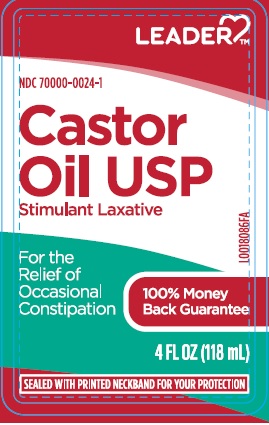Leader Castor Oil | Castor Oil Oil while Breastfeeding

What is Leader Castor Oil | Castor Oil Oil used for?
Brief: Stimulant Laxative
Leader Castor Oil | Castor Oil Oil while breastfeeding safe or not? Can there be any side effects for infant while using it during breastfeeding?

Leader Castor Oil | Castor Oil Oil Breastfeeding Analsys
Castor oil while Breastfeeding
UnsafeCAS Number: 8001-79-4
The seeds contain 50% oil. In the oil there are established fatty acids such as ricinoleic (90%), linoleic, oleic, linolenic and palmitic.In the seeds there is ricin, a substance that can cause a very serious poisoning.Castor oil is orally used as a laxative and topically as an anti-inflammatory medicine on the skin. It appears as excipient in several dermatological and cosmetic preparations. At latest update relevant published data on excretion into breast milk were not found. The ricinoleic acid is an irritant of the intestinal mucosa where it is readily absorbed, being able to appear in the milk. It is highly recommended to use a safer laxative while breastfeeding. Castor oil, either orally (Winterfeld 2012) or topically applied on the breast (Rasiya 2011), has been used as a galactogogue without any proof on effectiveness. On the other hand, it has also been allegedly used to reduce milk production (Hardy 2000, Eglash 2014 ).The best galactogogue-like results are attained through a frequent and on demand breastfeeding along with a correct technique (ABM 2011). In some cultures castor oil is administered instead of colostrum to infants in the first few days of life (Benakappa 1989), being this a risky practice, since diarrhea, dehydration, insomnia and tremor can occur. Topical use on the skin is not contraindicated during lactation, provided it is not applied on the breast and areas where the infant can touch and absorb it are avoided.
Leader Castor Oil | Castor Oil Oil Breastfeeding Analsys - 2
Castor oil while Breastfeeding
CAS Number: 8001-79-4
Castor (Ricinus communis) beans contain triglycerides, mostly consisting of ricinoleic acid esters, and small amounts of the toxic ricin and ricine. Pressing of the beans produces castor oil and purification of the oil eliminates the ricin and ricine. Castor oil is a strong stimulant laxative. Castor beans as well as a homeopathic preparation of castor purportedly reduce milk flow,[1][2] but it is also reportedly used as a galactagogue.[3] A poultice of castor leaves is a purported galactogogue.[4][5] In some parts of India, castor oil is also reportedly applied to the breasts to stimulate lactation.[5] No scientifically valid clinical trials support either of these uses and some preparations may be toxic to the infant. Galactogogues should never replace evaluation and counseling on modifiable factors that affect milk production.[6] No data exist on the excretion of any components of the castor plant or castor oil into breastmilk or on their safety and efficacy in nursing mothers or infants. However, little of the active ricinoleic acid is thought to be absorbed from the intestine. Because of a lack of information, other laxatives may be preferred in nursing mothers. In traditional Indian culture, castor oil has been administered to newborn infants during the first 2 to 3 days of life, often resulting in adverse effects.[7][8] Administration of castor oil to newborns is dangerous and should be avoided. Dietary supplements do not require extensive pre-marketing approval from the U.S. Food and Drug Administration. Manufacturers are responsible to ensure the safety, but do not need to the safety and effectiveness of dietary supplements before they are marketed. Dietary supplements may contain multiple ingredients, and differences are often found between labeled and actual ingredients or their amounts. A manufacturer may contract with an independent organization to verify the quality of a product or its ingredients, but that does certify the safety or effectiveness of a product. Because of the above issues, clinical testing results on one product may not be applicable to other products. More detailed information #about dietary supplements# is available elsewhere on the LactMed Web site.
What if I already have used Leader Castor Oil | Castor Oil Oil?
If you observer abnormal behavior or any other health issue in infant then you should immediately call 911 or contact other contact other emergency service provider in your area otherwise closely monitor the baby and inform your doctor about your Leader Castor Oil | Castor Oil Oil usage and time interval of breastfeeding.
I am nursing mother and my doctor has suggested me to use Leader Castor Oil | Castor Oil Oil, is it safe?
If your doctor knows that you are breastfeeding mother and still prescribes Leader Castor Oil | Castor Oil Oil then there must be good reason for that as Leader Castor Oil | Castor Oil Oil is considered unsafe, It usually happens when doctor finds that overall advantage of taking
If I am using Leader Castor Oil | Castor Oil Oil, will my baby need extra monitoring?
Yes, Extra monitoring is required if mother is using Leader Castor Oil | Castor Oil Oil and breastfeeding as it is considered unsafe for baby.
Who can I talk to if I have questions about usage of Leader Castor Oil | Castor Oil Oil in breastfeeding?
US
National Womens Health and Breastfeeding Helpline: 800-994-9662 (TDD 888-220-5446) 9 a.m. and 6 p.m. ET, Monday through Friday
UK
National Breastfeeding Helpline: 0300-100-0212 9.30am to 9.30pm, daily
Association of Breastfeeding Mothers: 0300-330-5453
La Leche League: 0345-120-2918
The Breastfeeding Network supporter line in Bengali and Sylheti: 0300-456-2421
National Childbirth Trust (NCT): 0300-330-0700
Australia
National Breastfeeding Helpline: 1800-686-268 24 hours a day, 7 days a week
Canada
Telehealth Ontario for breastfeeding: 1-866-797-0000 24 hours a day, 7 days a week
